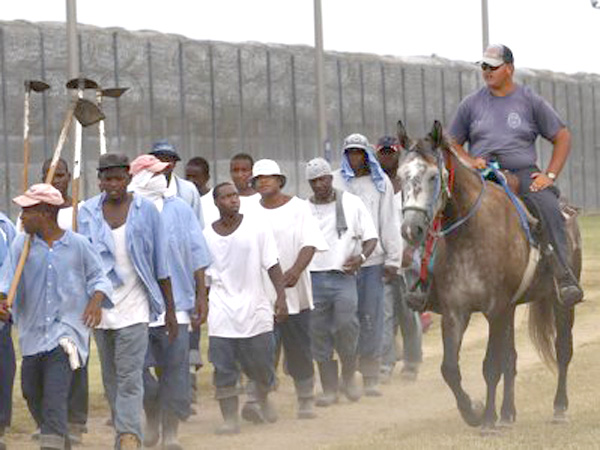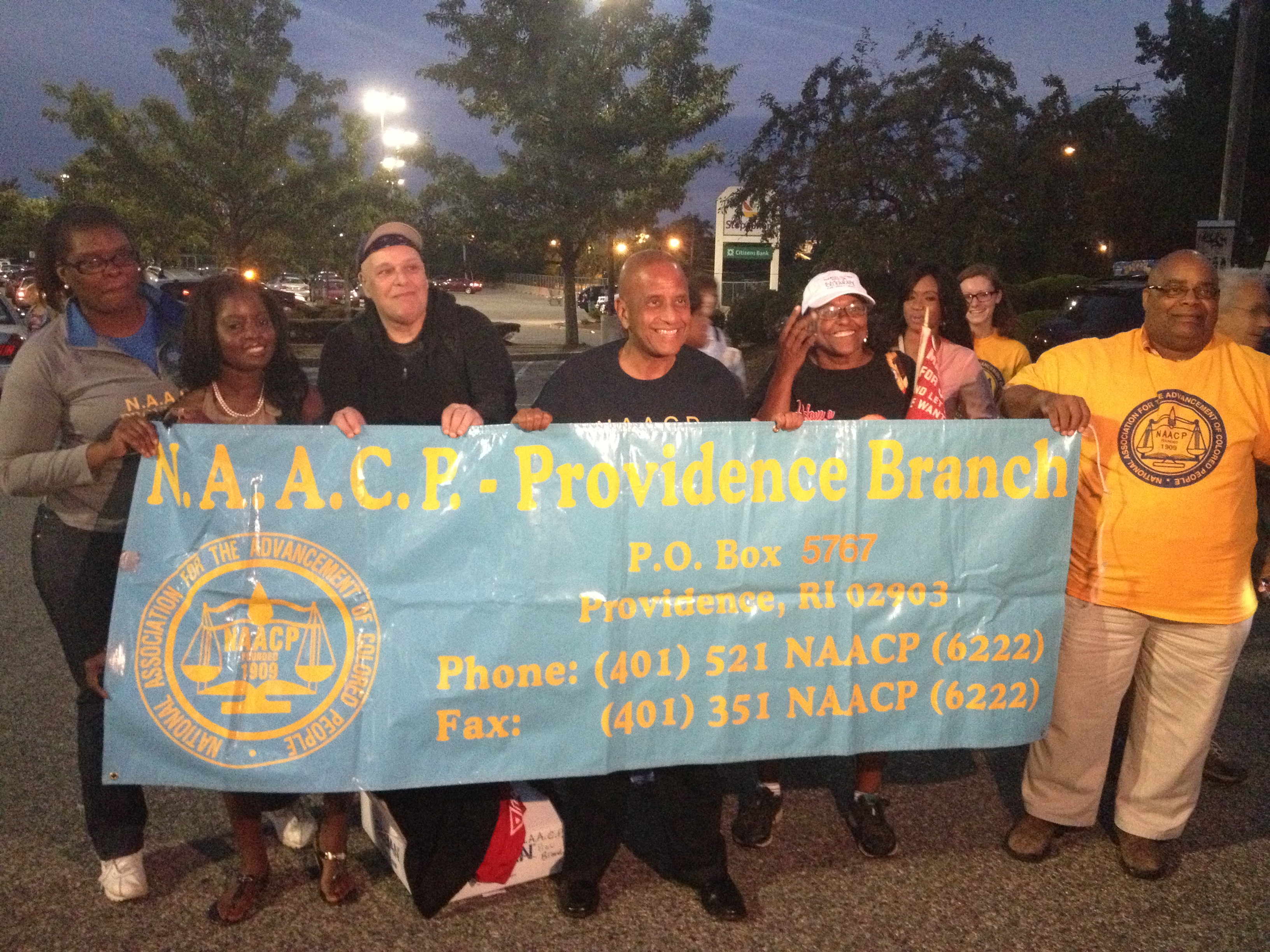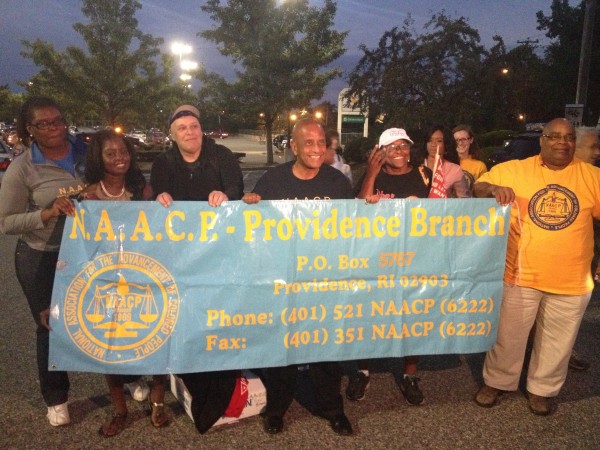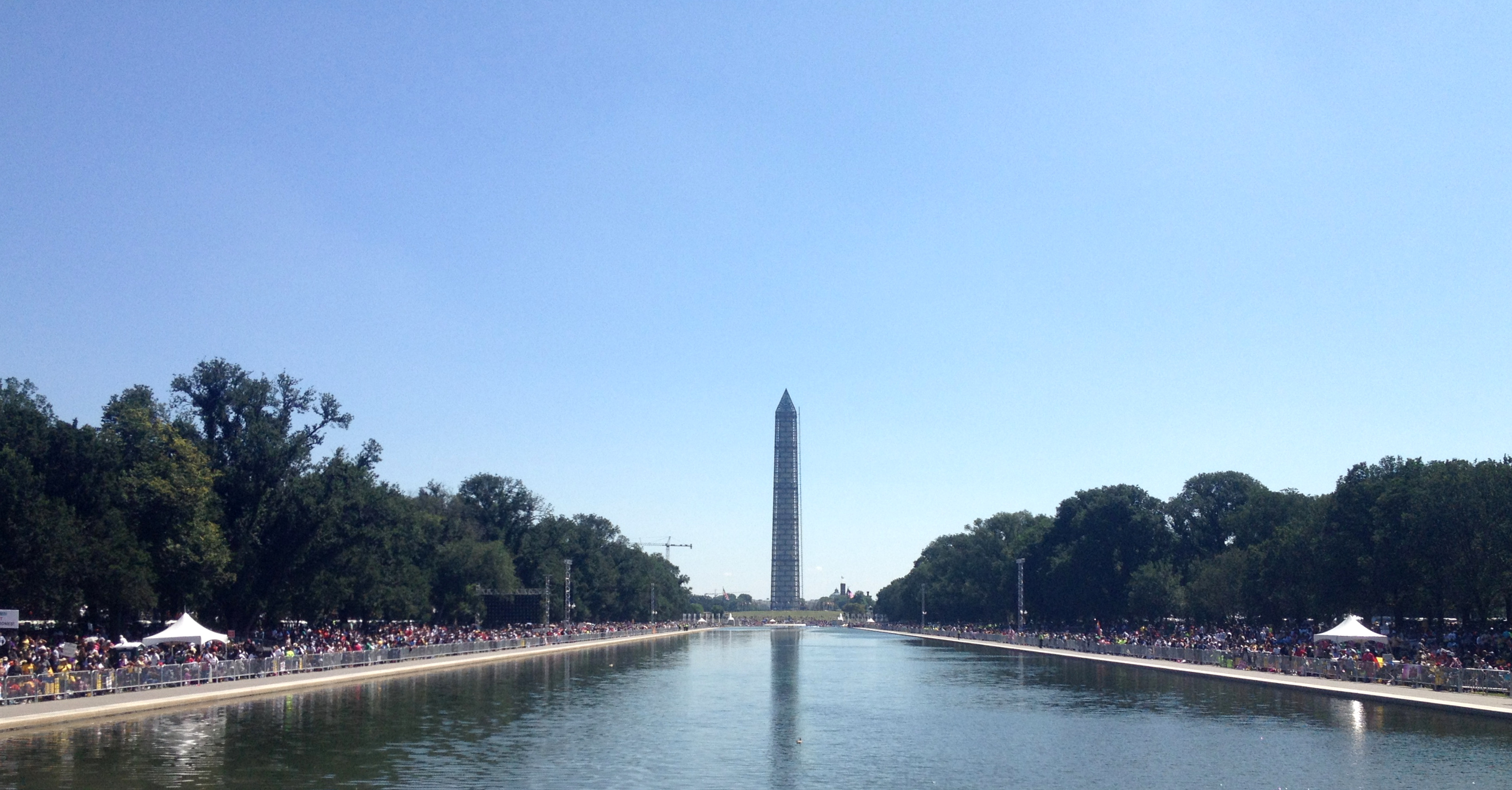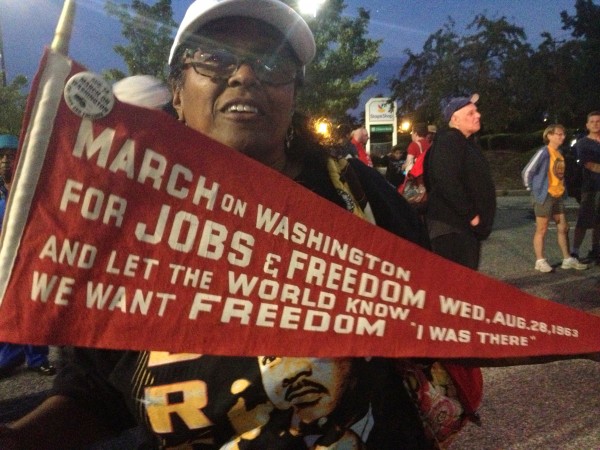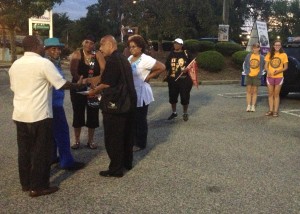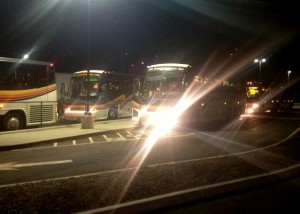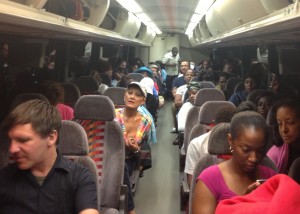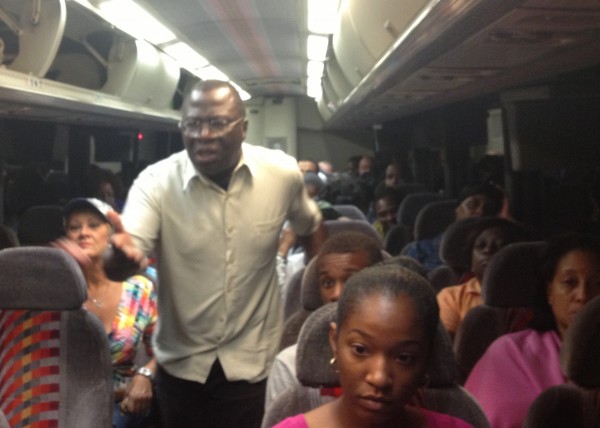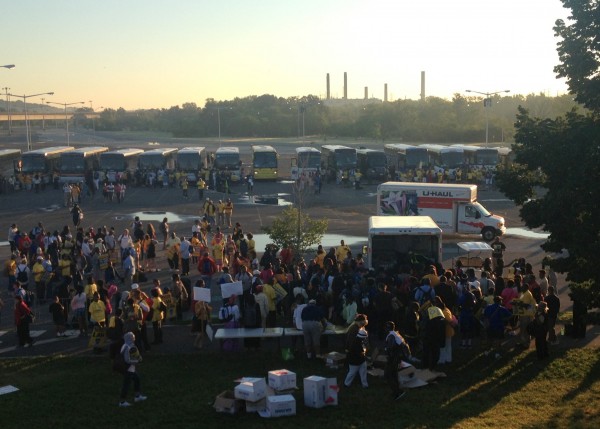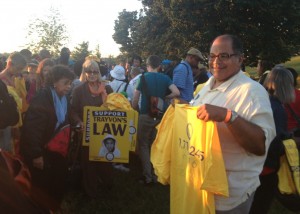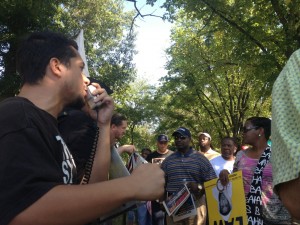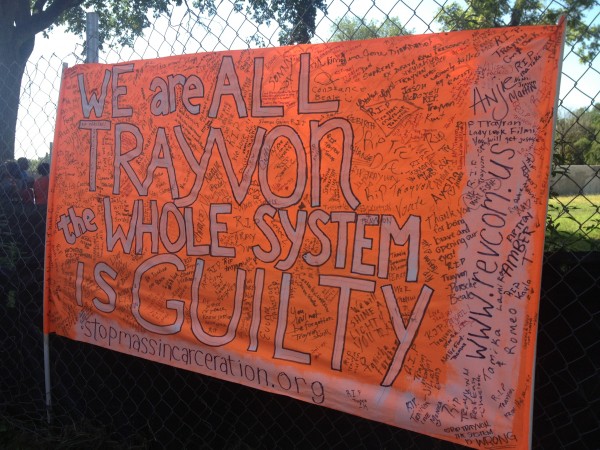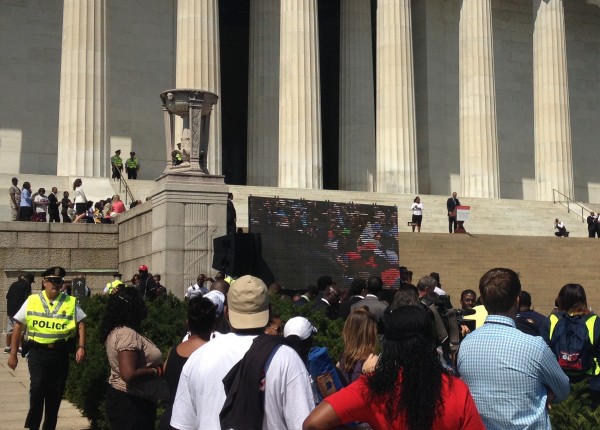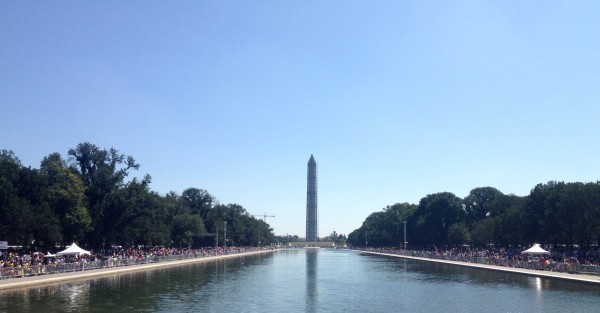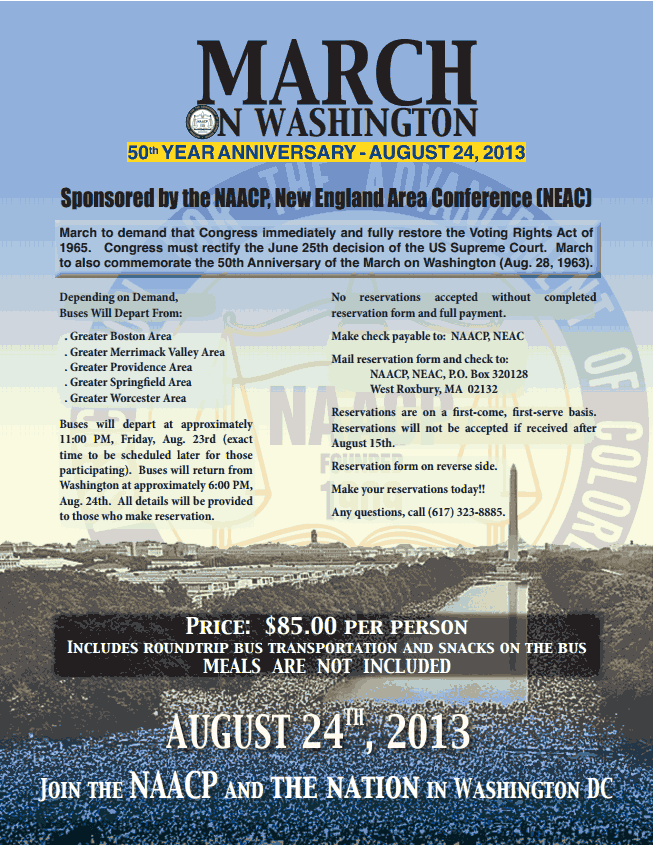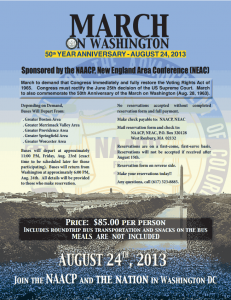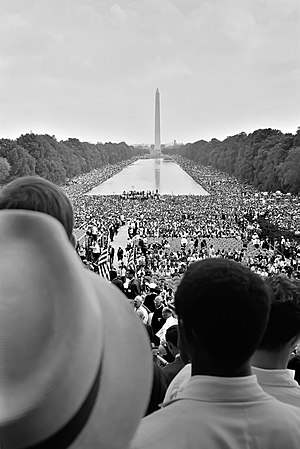 I like to believe that more Americans believe in the concept of equal justice today than in 1963. The 50th Anniversary of the March on Washington will evoke different thoughts from different people, some with nostalgia, others with disdain. My point isn’t to take a historical narrative, as others can provide that quite well. What is important for America to realize today is that the struggle for equal civil and human rights continues in 2013.
I like to believe that more Americans believe in the concept of equal justice today than in 1963. The 50th Anniversary of the March on Washington will evoke different thoughts from different people, some with nostalgia, others with disdain. My point isn’t to take a historical narrative, as others can provide that quite well. What is important for America to realize today is that the struggle for equal civil and human rights continues in 2013.
A new video, “Our Turn to Dream,” expertly explains the current situation of low-income people, particularly Black and Latino Americans, facing what can only be considered a police state. Pastor Kenny Glasgow, founder of The Ordinary People Society (T.O.P.S.), started working towards rebuilding his own community in Dothan, Alabama; but then realized that this issue looks the same nationwide.
Here are a few myths that need to be debunked:
- Racism is over. Most people will acknowledge that racism is a cultural phenomenon dating back hundreds, even thousands, of years. They will acknowledge that slavery could not have worked without the skin color; that Manifest Destiny (i.e. seizing all the land from sea to sea) would not have worked without designating the residents as “savages.” Yet we don’t want to believe racism is still at play in 2013. It was all the way up to 1963, but it disappeared as soon as President Johnson signed the Civil Rights Act.
- It’s a coincidence that the American system of mass incarceration also addresses the effects of poverty, unemployment, mental illness, and addiction by using prison cells. We cage those of us who fall by the wayside or get caught up with a youthful indiscretion or a moment of uncontrolled emotion. It is a myth that over-incarceration is some sort of mistake. The flaws and results are not a mistake. Anything of this magnitude is not a mistake. Thus, we can’t just educate American politicians and believe that the mistake will be corrected.
People ask me “how can you say the criminal justice system is racist, that’s just hyperbole.” I don’t want that person to catch a sound-byte and move on, believing or disbelieving. I want them to ask for an explanation. There are dots to connect regarding power and economics. So check this out:
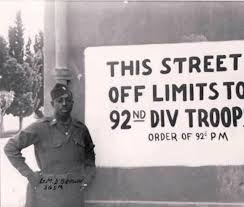 Prison as System to Control ALL Americans
Prison as System to Control ALL Americans
Wars have always been fought for multiple reasons. There is generally some resources to seize, or strategic position to gain, but they also unite citizens against a common “other” enemy. Wars also create profits for those who build the war machinery, and employ soldiers at low wages based on the ideology of “defending their country.”
Wars, and their residual effects, don’t always go so smoothly. Black soldiers returned from WWII with a sense of entitlement and opportunity. The G.I. Bill and the Civil Rights Movement vastly expanded a middle-class, right in the face of those who freely used the N-word. Twenty years later, the Vietnam War took a very bad turn. The war militarized young Black men, some of whom had a similar sense of entitlement and opportunity. Meanwhile, President Nixon and J. Edgar Hoover infamously waged a covert domestic war against people struggling for equality here in America.
The “War on Drugs” was launched in 1972. It was direct replacement of the Vietnam War. This time the enemy wasn’t fascism or communism and we didn’t need to draft anyone or violate a sovereign nation to fight it. The enemy lived in low-income urban communities, the same places these Black and Latino young men returned to after service in Vietnam. Many had the physical, mental, and spiritual challenges of surviving war- and were now looking for jobs.
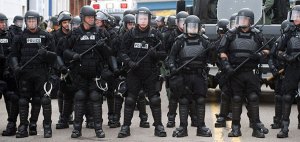 City police forces began bulking up as federal dollars started to roll. The cultural campaign of describing drugs as an evil scourge started to bloom. And who would say our leaders are wrong? The Civil Rights Movement had been appeased, infiltrated, arrested, and assassinated. Peaceful assembly, free speech, and petitioning the government became scary. Some of the survivors blinked, or looked the other way, or (most likely) never really saw it coming. The master-stroke of the drug war was in full swing before long.
City police forces began bulking up as federal dollars started to roll. The cultural campaign of describing drugs as an evil scourge started to bloom. And who would say our leaders are wrong? The Civil Rights Movement had been appeased, infiltrated, arrested, and assassinated. Peaceful assembly, free speech, and petitioning the government became scary. Some of the survivors blinked, or looked the other way, or (most likely) never really saw it coming. The master-stroke of the drug war was in full swing before long.
The drug war is genius. It is bipartisan. Industrial magnate Jay Gould once bragged that he could “pay half the working class to kill the other half.” In the drug war, half the working class is paid to incarcerate the other half. There are White prisoners and Black guards, yes. But those exceptions do not stunt the fact that skin color is an essential element of the cultural messaging of the drug war.
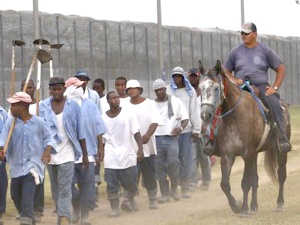 Mass Incarceration Evaporates Without Racism
Mass Incarceration Evaporates Without Racism
It is understandable, if one believes drug users and drug sellers to be such an evil scourge, that we send police into the most concentrated areas of drug use. Particularly if these perpetrators are young people; the younger we get them the longer we can punish them without paying for their geriatric care in prison. And the earlier we can get these people off the streets. Now imagine this group of concentrated drug users…
What did you imagine? If you are seeing young Black men hanging out on a basketball court you are wrong. The most concentrated area of drug use is in college dorms, frat houses, and similar apartments in such neighborhoods.
 Oh, but young White people are just going through an “experimental” phase. I’ve never heard such a description of drug use by young Black and Latino people. As someone who has been among drug users and sellers of both communities, I can tell you there are experimenters, steady users, and people who need help everywhere. But you knew that. The gut reaction is due to 40 years of cultural messaging by those in power. Thank the 11 o’clock news, while you’re at it.
Oh, but young White people are just going through an “experimental” phase. I’ve never heard such a description of drug use by young Black and Latino people. As someone who has been among drug users and sellers of both communities, I can tell you there are experimenters, steady users, and people who need help everywhere. But you knew that. The gut reaction is due to 40 years of cultural messaging by those in power. Thank the 11 o’clock news, while you’re at it.
Serving Multiple Masters- Excess Labor
 Its not like America’s best economic minds have a better idea. In our state-subsidized economic system (call it Capitalist, Socialist, or whatever), the tax-payer is the top customer and top employer, whether directly or indirectly. Without manufacturing jobs, where do we send the labor? One super-crane eliminates 100 dockworkers. Even the checkout girl has been replaced with a machine.
Its not like America’s best economic minds have a better idea. In our state-subsidized economic system (call it Capitalist, Socialist, or whatever), the tax-payer is the top customer and top employer, whether directly or indirectly. Without manufacturing jobs, where do we send the labor? One super-crane eliminates 100 dockworkers. Even the checkout girl has been replaced with a machine.
Police, guards, and sheriffs require little training and education to be on the job. Their existence has also massively expanded the jobs for judges and lawyers. Furthermore, the incarcerated and formerly incarcerated are not counted amongst the “unemployed.” They (or “we,” I should say) are written off as non-existent. More importantly, we are not allowed to come home with a sense of entitlement and opportunity. Even if some of us did, we are sometimes traumatized by our experience with no outlets through which to heal.
And Yet It Crumbles…
The Law of Diminishing Returns is the principle where something only works to a certain extent. If you keep doing more of it, the thing starts getting worse. Put two cooks in the kitchen and make twice the food. Put four cooks in the kitchen and you start getting half the food.
The American governments can’t literally pay half the working class to lock up the other half. Just like telecommunications have made it difficult to wage war against the “savage” foreigner, it is difficult to maintain the rhetoric that drugs are evil, a moral curse, or that children who commit crimes expose their inner evil, or that formerly incarcerated people are incapable of raising children and being good neighbors.
Fifty years after the March on Washington and some reports indicate we are more segregated than ever, with a greater class disparity than any country except India. Yet all the private schools and gated communities cannot keep the tides of change at bay. Tens of millions of Americans have been put in cages. Each is part of a family and circle of friends. With over 65 million Americans having a criminal record, and likely over 100 million people directly impacted by an over-criminalizing, super-sentencing criminal justice system costing billions of dollars every year… it is tough to keep the lie alive. The lie is that this is all for your own good.
When the cure becomes worse than the disease, you have lost the confidence of your patient. Americans want to redesign the solutions and reallocate the billions of dollars. A movement is in place. We can call it a Civil Rights Movement, a Formerly Incarcerated and Convicted People’s Movement, or anything else. When the incarcerator begins expanding their industry to probation, parole, electronic monitoring, rehabilitation, and halfway houses: its because the rhetoric of cages has fallen on deaf ears and empty pockets.

